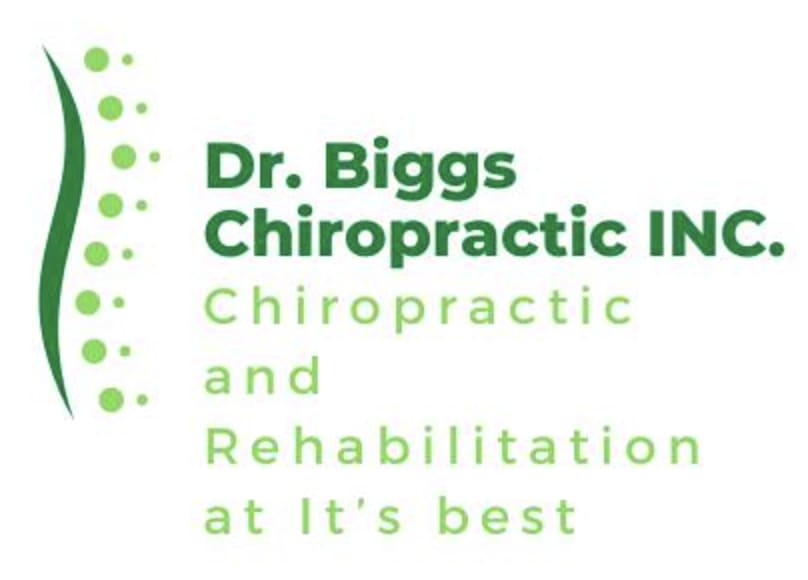Spinal Check-Up: What is It and How Often Should I Get One?

Posted on August 22nd, 2024.
Have you ever thought about how much time you spend hunched over a screen? Whether it's for work or leisure, our modern lifestyle heavily influences our posture and, subsequently, our spinal health.
Spinal health is more than addressing pain when it occurs; it's about preventing those aches from becoming a part of your routine in the first place.
Regular spinal check-ups, conducted by experienced professionals, play a pivotal role in catching issues before they escalate. It’s similar to how frequent tune-ups for your car can prevent bigger, more expensive problems down the road. Who wouldn’t prefer a quick adjustment now over extensive treatments later?
Moreover, as you age, your body undergoes changes that can influence your spine's health. Engaging in regular spinal assessments ensures you stay ahead of any potential issues, allowing you to maintain an active and fulfilling lifestyle.
The benefits are many, from preventing conditions like scoliosis to improving your posture and mobility. Think of these check-ups as a way to stay in tune with your body's needs, enabling you to make informed decisions about your health.
Let's take preventive steps to make sure that your spine remains in optimal health, and secure a future with fewer discomforts and more freedom of movement.
The Importance of Spinal Check-Ups
Preventing Chronic Pain and Severe Spinal Conditions
Regular spinal check-ups act as a preventive measure, helping to identify minor issues before they escalate into more serious problems. Think of it like maintaining a vehicle; a small alignment today can prevent a major breakdown tomorrow. By having a qualified chiropractor or physical therapist conduct a spinal health assessment, you can uncover hidden misalignments, muscle imbalances, and early signs of wear and tear. Consequently, this proactive approach reduces the risk of chronic pain and more acute spinal conditions down the road, making your life not just pain-free but also more fulfilling and active.
Early Detection of Spinal Issues
No one enjoys the discomfort and limitations that chronic pain can bring. By addressing these issues early on through a thorough spinal health assessment, interventions can be more effective and less invasive. For example, catching a slight curvature early can prevent it from developing into a more severe condition like scoliosis. Plus, these check-ups allow you and your healthcare provider to track your spinal health over time, making it easier to spot trends and tweak your care plan as needed. It’s reassuring to know that you’re in tune with your body and taking steps to prevent future health complications.
Improving Posture and Mobility
In today’s world, where so many of us spend hours hunched over computers or looking down at our phones, poor posture is becoming increasingly common. Poor posture doesn’t just affect how you look; it can also lead to issues such as neck pain, back pain, and even headaches. Regular spinal health assessments can help you maintain correct alignment, strengthening the muscles that support your spine and improving your posture. This, in turn, enhances your mobility, making everyday tasks easier and more comfortable.
The Spinal Check-Up Procedure
The spinal check-up procedure itself is straightforward and non-invasive, making it a comfortable experience for you:
- To begin, you'll have an initial consultation where you’ll discuss your medical history, any current symptoms, and your lifestyle habits. This discussion helps the chiropractor or physical therapist to understand your unique situation better. Be as detailed as possible; even minor issues like occasional neck stiffness or back pain can provide valuable insights into your spinal health.
- Following this, a physical examination takes place. This part of the check-up involves assessing your posture, range of motion, and any areas of discomfort. The healthcare professional may ask you to perform specific movements or stretches to identify any limitations or pain points.
- Next, a back pain assessment is typically conducted to target those specific areas causing you discomfort. This step might involve gentle palpation of your spine to identify any irregularities or tenderness, along with specific tests that check the functionality and alignment of your vertebrae.
- Your chiropractor or therapist may also want to use advanced diagnostic tools such as X-rays, but only if deemed necessary, to get a clearer picture of your spinal structure. These assessments help in diagnosing the exact condition affecting you, whether it’s a pinched nerve, muscle strain, or something more complex like a herniated disc.
Knowing exactly what’s happening allows for a tailored treatment plan aimed precisely at your needs, ensuring the best possible care.
How Often Should You Get a Spinal Check-Up?
 The frequency of spinal check-ups can vary based on age, lifestyle, and any pre-existing health conditions.
The frequency of spinal check-ups can vary based on age, lifestyle, and any pre-existing health conditions.
Children
For younger children, a check-up once a year is generally sufficient as part of their routine well-child visits. This way, you can catch any early signs of scoliosis or other developmental issues.
Adolescents
Adolescents, especially those involved in sports, might benefit from bi-annual check-ups since their bodies are in a rapid growth phase. Ensuring spinal health during these formative years can save them from potential chronic issues in adulthood.
Adults
Adults with desk jobs, strenuous physical labor, or those leading a sedentary lifestyle should consider bi-annual spinal check-ups. Staying ahead of posture-related problems is vital in this age group, especially given our modern-day reliance on digital devices. For those wondering when to get a spinal check-up, if you’re experiencing chronic back or neck pain, frequent headaches, or stiffness, don’t wait for your annual appointment. Seek professional advice to address these issues promptly.
Athletes
Athletes, due to the demanding nature of their training and physical stress, should have quarterly assessments. This ensures optimal performance and prevents injuries by maintaining muscular balance and spinal alignment. Chiropractic care for athletes is key for this group.
Seniors
As we age, our spine undergoes natural wear and tear. Seniors should ideally have quarterly spinal check-ups to monitor and manage age-related conditions like arthritis and osteoporosis. These frequent assessments can help maintain mobility and reduce the risk of falls or fractures.
People With Existent Health Conditions
For those with existing health conditions—such as herniated discs, scoliosis, or other chronic spinal ailments—a monthly check-up might be recommended to closely monitor and manage these issues. Remember, neglecting routine check-ups can lead to minor misalignments becoming more severe problems over time.
Final Thoughts
Incorporating regular spinal check-ups into your healthcare routine yields numerous benefits. Whether preventing future pain or managing existing issues, the key is to work with professionals who understand your unique needs.
At Dr. Biggs Chiropractic Inc. in Marietta, Georgia, we pride ourselves on a holistic approach to your wellness. Beyond spinal check-ups alone, our suite of services—including chiropractic care, physical therapy, and massage therapy—offers a well-rounded plan for your overall health. Think of it as more than just appointments; it’s a partnership in maintaining and enhancing your well-being.
But that's not all; our dedication to patient care extends to nutrition and health coaching. All these elements contribute to your spinal health and overall wellness. By integrating nutritional advice with our physical therapies, we make sure that you're not just addressing symptoms but fostering long-term improvements. Picture having a team invested in each milestone of your health journey, from relieving your current discomfort to ensuring your continued well-being. Therefore, tailoring a personalized care plan isn’t just a service we offer; it’s a commitment we uphold every day.
Ready to take control of your spinal health and overall well-being? Contact Us Now!
If you have any questions or need personalized advice, don't hesitate to reach out at (678) 469-5635 or via email at [email protected]. Your health and happiness are interconnected, and taking proactive steps today ensures a brighter, pain-free tomorrow.
Get in Touch
Let’s Connect
Please use the form below to contact us with any questions about our rehabilitation services.

